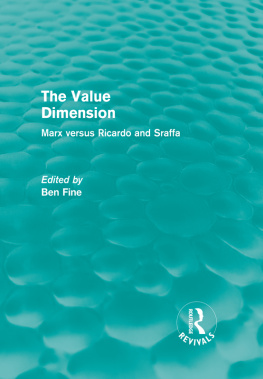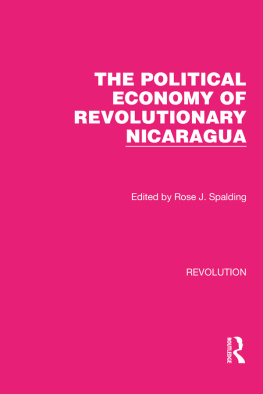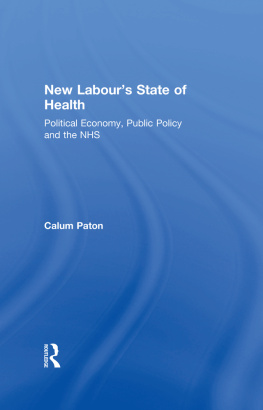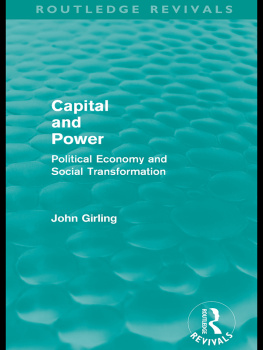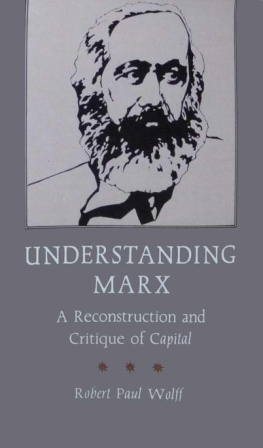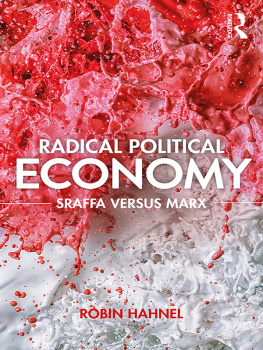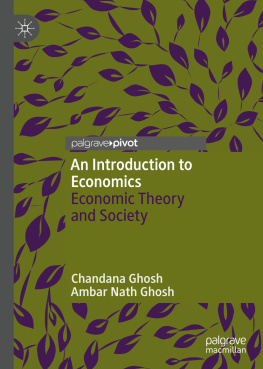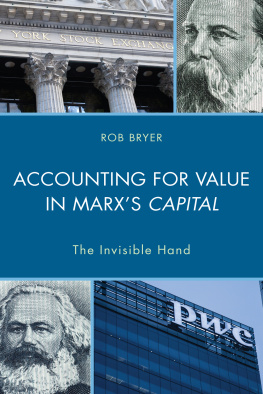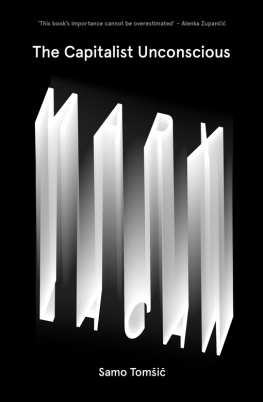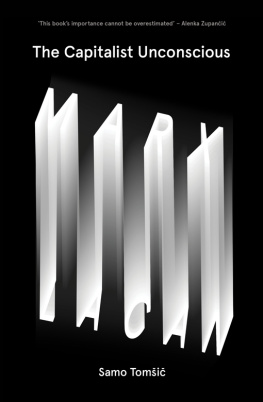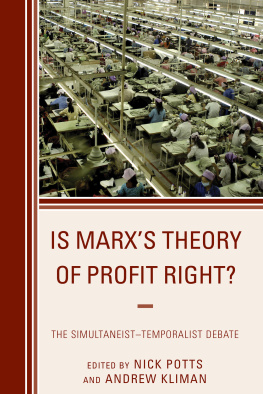Routledge Revivals
The Value Dimension
The essays in this edited collection, first published in 1986, focus on important debates surrounding the central Marxian problem of the transformation of values into prices. The collection brings together major contributions on the value theory debate from the decade prior to the books publication, and assesses the debates significance for wider issues. Value theory emerges as much more than a technical relation between labour time and prices, and the structure of the capitalist economy is scrutinised. This is a relevant and comprehensive work, valuable to students, academics and professionals with an interest in political and Marxist economy.
First published in 1986
by Routledge and Kegan Paul Ltd
This edition first published in 2013 by Routledge
2 Park Square, Milton Park, Abingdon, Oxon, OX14 4RN
Simultaneously published in the USA and Canada
by Routledge
711 Third Avenue, New York, NY 10017
Routledge is an imprint of the Taylor & Francis Group, an informa business
Introduction 1986 Ben Fine
Chapter 2 1972 Routledge & Kegan Paul
Chapter 3 1976 Routledge & Kegan Paul
Chapter 4 1981 Routedge & Kegan Paul
Chapter 5 1979, 1980 Routledge & Kegan Paul
Chapter 6 1982, 1983 Routledge & Kegan Paul
Chapter 7 1983 Routledge & Kegan Paul
Chapter 8 1984 Routledge & Kegan Paul
All rights reserved. No part of this book may be reprinted or reproduced or utilised in any form or by any electronic, mechanical, or other means, now known or hereafter invented, including photocopying and recording, or in any information storage or retrieval system, without permission in writing from the publishers.
Publishers Note
The publisher has gone to great lengths to ensure the quality of this reprint but points out that some imperfections in the original copies may be apparent.
Disclaimer
The publisher has made every effort to trace copyright holders and welcomes correspondence from those they have been unable to contact.
A Library of Congress record exists under LC control number: 87109334
ISBN 13: 978-0-415-83760-6 (hbk)
ISBN 13: 978-0-203-78354-2 (ebk)
First published in 1986 by
Routledge & Kegan Paul Ltd
11 New Fetter Lane, London EC4P 4EE
Set in 11/12 pt Plantin
by Columns of Reading
and printed in Great Britain
by T. J. Press (Padstow) Ltd,
Padstow, Cornwall
Introduction Ben Fine 1986
Chapter 2 Routledge & Kegan Paul 1972
Chapter 3 Routledge & Kegan Paul 1976
Chapter 4 Routledge & Kegan Paul 1981
Chapter 5 Routledge & Kegan Paul 1979, 1980
Chapter 6 Routledge & Kegan Paul 1982, 1983
Chapter 7 Routledge & Kegan Paul 1983
Chapter 8 Routledge & Kegan Paul 1984
No part of this book may be reproduced in any form without permission from the publisher except for the quotation of brief passages in criticism
British Library Cataloguing in Publication Data
The Value dimension : Marx versus Ricardo and Sraffa.(Economy & society)
1. Value
I. Fine, Ben II. Series
338.521 HB201
ISBN 0-7102-0766-2
Contents
Ben Fine
Geoffrey Pilling
Ira Gerstein
Heiner Ganssmann
Ben Fine
Gilbert Faccarello
Ben Fine
Guglielmo Carchedi
A cynic knows everything of price and nothing of value.
with apologies to Oscar Wilde.
We have developed a passion for formulae which mitigate facts and obscure issues.
Lord Horder, Obscurantism, Conway Memorial Lecture,
Watts & Co. London, 1938, p. 6.
Ben Fine
It is normal for an introduction to an edited collection to engage in a broader literature survey, to explain the criteria of selection and to summarize and give a guide to the pieces that have been included. I have not attempted to do any of these, although some are partially covered in passing. Instead, I have attempted to construct a potted history of the debate over the period concerned, giving some explanation of why the contributions came as and when they did. For this reason, I presume some knowledge on the part of the reader of what the transformation problem is and of some of the issues which are raised by it. To a large extent, even at an elementary level, this is the subject matter of the readings included here, so that a return to this introduction may be warranted after a reading of the text.
Any such history as intended here, is bound to contain a heavy element of subjectivity and bias. It is as if a minor character in a play is responsible for a review of it. The scenes in which the character appears are necessarily going to figure more prominently and other scenes, whatever their importance, may pass unobserved. Like a play, it will be argued in this introduction that the transformation problem is open to alternative interpretations and presentations according to the way in which the relationship between production and exchange is understood and which aspects of this relationship are the subject of attention. To see it as the search for and discovery of a definitive solution to a well-defined problem, the calculation of prices as the Sraffian or post-Sraffian interpretation would have it, is only one construction of the transformation. But it is not the only one (although it has, from different viewpoints, been central to much recent debate); if it were, it would be a simple matter to rehearse the solution, even with varying interpretations, for each new generation of economists and the play need never grace the stage of original research nor original context again.
The setting
From the late 1960s onwards there was a considerable growth of interest in Marxism within the western academic world. Following Accordingly, there was little here on which a new generation of political economists could hone their analytical powers.
In the UK, a growing challenge to orthodox neoclassical economics was perceived to be contained in the Cambridge critique of capital theory. In its details, this involved an attack on neoclassical one-sector growth and distribution theory and, for some, by implication from the work of Sraffa (1960), an attack on neoclassical theory as a whole. The Cambridge critique constructed a theory of prices and distribution (the wage-profit relation) by reference to production conditions (input-output coefficients) alone and without reference to demand (subjective preferences as expressed by utility).
This solution to the determination of prices and profits from given production conditions was, then, originally intended as the basis for a criticism of the neoclassical orthodoxy. And it has proved to be such and has even given rise to a more positive alternative in the school of post-Keynesian economics, which emphasizes aggregate macroeconomic relations, monopolization, class-based distributional struggle and other common sense realities of the modern economy in contrast to the orthodoxy.
Meanwhile, the flag of Marxist political economy had been held aloft, particularly by Maurice Dobb and Ronald Meek. For the former, in his academic writings, the labour theory of value figured very much as a tool with which to create both a sociology of capitalist exploitation (as opposed to bourgeois welfare economics) and as a means to uncover the laws of motion of capitalism (as opposed to the dominant stream of neoclassical/Keynesian economics). In the first instance, this was a return to the natural right of labourers to the full fruits of their work, a moral that had been basic to the Ricardian socialists.
Next page
